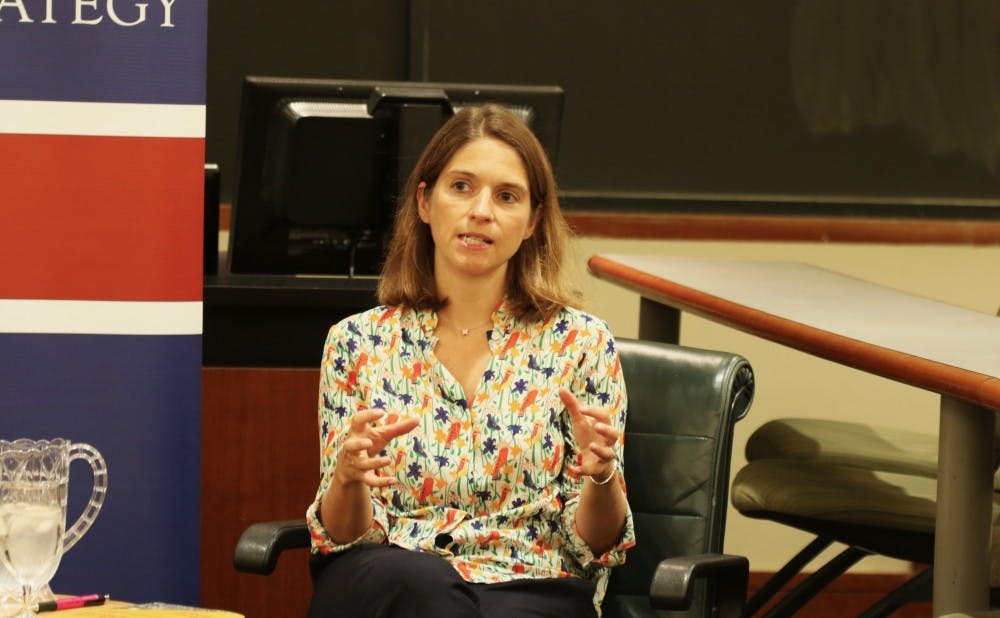Although some would argue Americans became more significantly more invested in human rights after the Vietnam War, one historian questions the connection.
Sarah B. Snyder, American University associate professor and historian of U.S. foreign relations, said transnational connections was a bigger motivator to focus American foreign policy on human rights than any guilt associated with the Vietnam war.
“I don't want to say that Vietnam has no influence at all,” Snyder said Thursday at a talk entitled "From Selma to Moscow," hosted by American Grand Strategy and the political science department. “But I don't see a clear continuity of people who were involved in the anti-war movement and then people who became active in human rights. For me, it's largely a generational issue. The people who I write about come to human rights by and large through professional contacts or through experiences they have beyond the years of their university careers.”
Snyder argued that in the cases she examined—experiences such as volunteering for the Peace Corps, serving as a missionary overseas or being a student in a foreign country—motivated Americans to become more involved in human rights work.
Nevertheless, she credited activists for raising public awareness of human rights abuses and making it a government priority.
“The activists in these years did a very good job of raising public awareness in human rights issues and getting the American public to believe that the United States is and should be a leader on human rights,” she said. “I think if that level of public engagement continues, it can be much harder for the governments to take steps that seem to contradict that ideal.”
In her book "From Selma to Moscow: How Human Rights Activists Transformed U.S. Foreign Policy," Snyder analyzed American responses to the human rights violations that occurred during the 1960s in the Soviet Union, Southern Rhodesia, South Korea, Greece and Chile. After conducting exploratory research, she eventually decided on those five regions based on the amount of material she found and which human rights violations Americans were most concerned about at the time.
“I wanted to show diversity of geography [and] diversity of ideology, so some places that were allies with the U.S. in the Cold War and some places that weren't, and then I wanted to show diversity of the human rights that were being violated,” Snyder said.
She also spoke about partisan differences in handling international relations, as Republicans tended to be more vocal in criticizing some human rights violators than others.
“Republicans and Democrats are active in human rights,” she said. “They're not always active in the same cases. For example, there's a lot of bipartisan support for paying attention to human rights abuses in Communist countries....so you have much greater Republican willingness to…publicly criticize the Soviet government. Whereas if you look at the case in Chile, I can't think of a prominent Republican voice there who's critical of what's happening."
Get The Chronicle straight to your inbox
Signup for our weekly newsletter. Cancel at any time.

